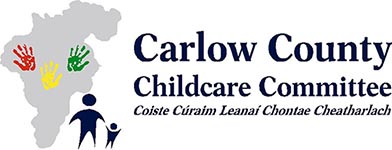Announcement of the second phase of Special Schools included in enhanced in-school therapy supports pilot
From Department of Children, Equality, Disability, Integration and Youth
Published on
Last updated on
Following the commencement of the first phase of the enhanced in-school therapy supports pilot announced on 9 August, Minister O’Gorman, Minister Foley, Minister Rabbitte, Minister Naughton, senior HSE and NCSE officials have today welcomed the further announcement of ten special schools included in the second phase of the pilot.
The focus of the pilot is to provide the effective delivery of enhanced in-school therapy supports to children in selected special schools, managed in a coherent and collaborative manner.
Subsequent to detailed deliberations by the Department of Children, Equality, Disability, Integration and Youth, the Department of Education, the HSE and the NCSE, which looked at a range of criteria including considerations around lessons learned from the rollout of Phase 1, the level of educational need, and existing levels of resources available in the respective Children’s Disability Network Teams (CDNTs), a number of schools were selected as being most suitable for the second phase. This suitability does not diminish the existing needs of other schools, the selection of these schools reflecting a combination of areas of relatively greater need and capacity to deliver on the Pilot objectives.
Eight special schools in the Dublin/Cork area were selected for inclusion in Phase 2 and, in the context of the imperative to ensure deliverability of the previously agreed government commitment to include a further ten schools in the pilot, the selection process was extended to a third location from which the final two schools were selected.
In Dublin, the special schools included in the second phase of the pilot are:
- Cheeverstown House, Kilvare, Templeogue, Dublin 6
- Saplings Special School, St Mary’s Convent, Ballyroan Crescent, Rathfarnham, Dublin 16
- ABACAS Kilnamanagh, C/O St Kevin’s Special School, Treepark Road, Kilnamanagh, Dublin 24
- Holy Family School for the Deaf, Navan Rd., Cabra, Dublin 7
- St. Vincent’s, Navan Road, Dublin 7
- St. Michael’s House Special School, College St, Baldoyle, Dublin 13
In the Cork area, the special schools included in the second phase of the pilot are:
- East Cork Community Special School, Carrigtwohill, Co. Cork
- St. Killian’s School, Mayfield, Co. Cork
In Galway, the special schools included in the second phase of the pilot are:
- Rosedale School, Woodlands Centre, Renmore, Galway
- St. Teresa’s Special School, 25, Moher, Ballinasloe, Galway
Key stakeholders including the Department of Children, Equality, Disability, Integration and Youth, the Department of Education, the Health Service Executive, lead agencies, the National Council for Special Education and special schools will continue to collaborate to ensure the effective delivery of this pilot. The Steering Group overseeing this pilot will continue to meet on a weekly basis to ensure the expansion of the pilot is as efficient as possible and communication between stakeholders is clear and effective. The expansion of this pilot to the additional ten schools is expected to commence, on a phased basis, starting in January 2025, subject to discussions with relevant stakeholders.
Minister O’Gorman commented:
“Today’s announcement is a further positive step towards supporting children with complex needs and their families. It comes following comprehensive engagement between officials in my department and their counterparts in the Department of Education, the HSE and NCSE. I welcome the expansion of in-school therapy supports pilot programme to a further ten schools and look forward to seeing the improved outcomes for these children and their families as part of the overall government effort to improve children’s disability services across the country under the Progressing Disability Services programme. This integrated approach will seek to ensure the educational, health and social needs of children are met with the support of appropriate services.”
Minister Rabbitte stated:
“I am very pleased to see the expansion of the pilot for in-school therapies to a further ten schools across three areas. This pilot, involving all relevant service providers, will seek to enhance supports for the children in the school setting. It is expected that this will provide educational benefit to the children and also enhance school staff capacity and capabilities. I am hopeful that families will also see positive benefits for their children extend into the home environment, with the integrated approach between HSE and NCSE personnel being a key element of service delivery. I am happy to see the continued engagement by the departments, state agencies and lead agencies in progressing this important pilot.”
Minister Foley said:
“As Minister for Education I want every young person to have every available avenue to reach their full potential. I very much welcome that HSE therapists will be allocated to work in ten more special schools as part of this pilot programme.
“This pilot provides an opportunity for the HSE to work with the Department of Education and other key stakeholders to provide wraparound support for children and young people with the greatest level of need in our schools.”
Minister Naughton commented:
“Today’s confirmation that the HSE will provide occupational and speech and language therapists to an additional ten schools as part of this pilot marks a significant step forward in prioritising the needs of children with additional educational needs. Insights gained from the pilot’s first phase have guided the expansion of this initiative to ten more schools in phase two, with continuous engagement to address any outstanding issues. This pilot and the lessons it brings will be essential for shaping a more inclusive approach to education and ensuring that the right supports are in place for each child. Already, we have seen remarkable cooperation across the fields of Health and Education, and I look forward to applying the insights from this project to enhance future support for children with additional needs.”
